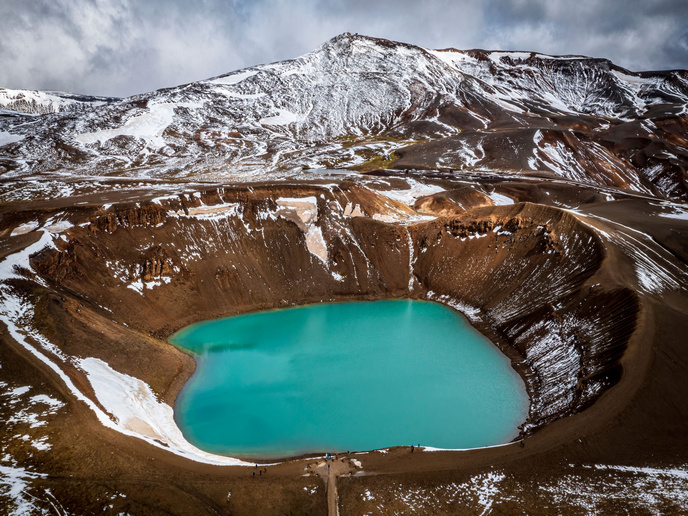Training tomorrow’s volcano scientists in the eruption hotspot of Iceland
Krafla is a caldera in northern Iceland that is part of a greater volcanic system. To date, it has erupted 29 times, with the last occurring in 1984. As one of the most active in all of Iceland, Krafla is also one of the most extensively examined volcanoes. What better place for nine PhD students to carry out their research than at a large central volcano as part of the EU-funded IMPROVE project? “The results of the deep drilling project in Krafla in 2009 have attracted worldwide attention, when drilling was carried out in magma at a depth of 2.1 km. That is one of the reasons why there is so much interest in Krafla in the scientific world,” explains Magnús Tumi Gudmundsson, a geophysicist at the University of Iceland’s Institute of Earth Sciences who led the research. The overall goal of this next generation of young scientists was to gain better insight into the relationship between the magma in the volcano and the overlying geothermal system. “The largest effort is being put into detailed studies of earthquake activity and surveys of the resistivity of the area,” states Prof. Gudmundsson. Using innovative methods in volcano science, the researchers performed experiments with greater accuracy than ever before to find places where magma lay at shallow depth. Other surveys included investigating surface deformation, gravity variations, geothermal fluid chemistry, CO2 flow and other features of the geothermal activity. IMPROVE (Innovative Multi-disciPlinary European Research training netwOrk on VolcanoEs) brings together nine academic and three industrial partners in Europe. Ending in August 2025, the 4-year project aims at training 15 PhD students, 9 of whom are carrying out their projects on Krafla. All positions started in March-August 2022 and last for 3 years. The Icelandic volcano and Italy’s Mount Etna are providing ideal conditions to develop advanced methods and a better understanding of the subsurface structure and dynamics at active volcanoes. The project includes multidisciplinary field experiments, network schools, specialised short courses, workshops, a network workshop on science-business relationships, digital training modules and a final conference. If you are interested in having your project featured as a ‘Project of the Month’ in an upcoming issue, please send us an email to editorial@cordis.europa.eu and tell us why!



